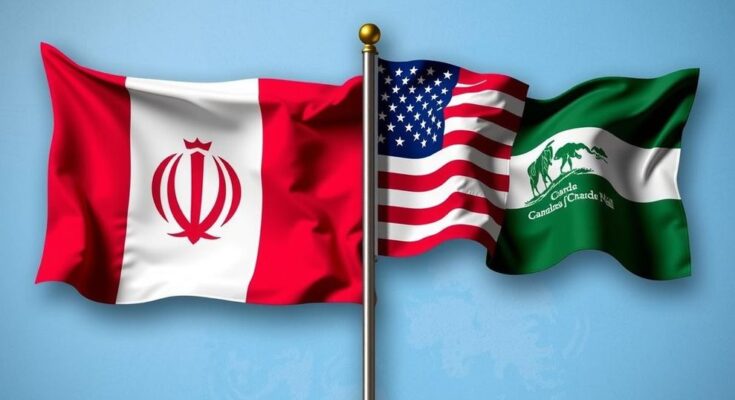Iran has pledged to support Canada, Panama, Mexico, and Greenland against U.S. aggression, particularly involving President Trump’s controversial claims over the Panama Canal and Greenland. The rhetoric surrounding U.S. imperialism has drawn criticism from affected nations, striving instead to uphold their sovereignty in response to provocation.
Iran has publicly pledged to support Canada, Panama, Mexico, and Greenland in opposition to what it labels as U.S. “aggression and terrorism.” This declaration arises amidst escalating tensions involving Donald Trump, who recently assumed the presidency and has expressed intentions to assert control over the Panama Canal and Greenland, possibly through military intervention. Iran’s military, via a verified social media account, assured that it stands ready to assist these nations against perceived threats from the United States, emphasizing its historical commitment to support fellow nations.
In addition to territorial claims, Trump has proposed using economic measures to integrate Canada as the 51st U.S. state and even suggested renaming the Gulf of Mexico to the Gulf of America, resulting in backlash from Canadian and Mexican officials. John Bolton, a former advisor to Trump, highlighted that such rhetoric may incentivize aggressive posturing from global powers like Russia and China.
Trump’s strong remarks on the relationship between Canada and the U.S. and the potential abolition of the border led to mixed reactions from Canadian officials, who contend that these ideas are not only absurd but also an attempt to create confusion and disrupt stable relations. The sovereignty of the Panama Canal has been staunchly defended by Panamanian representatives, asserting its historical significance and non-negotiable status. Mexico’s government has also expressed dismay at Trump’s proposals, emphasizing the need for respectful dialogue amongst neighboring nations.
Analysts speculate that Trump’s aggressive approach may reflect a broader imperialistic agenda that positions the U.S. as a dominant force in North America, potentially undermining established diplomatic relations. The situation remains tense, as nations respond to perceived threats and assert their individual sovereignty in the face of U.S. interventionist rhetoric.
The recent tensions between the U.S. and various countries in the Americas have been heightened by provocative statements from President Donald Trump. Of particular concern are Trump’s threats to seize the Panama Canal and make Greenland a U.S. territory, which have prompted strong reactions from both Canadian and Panamanian authorities. In light of these developments, Iran’s pledge of support to these nations serves both as a political statement and an attempt to counter U.S. policies viewed as aggressive. Such international responses highlight the dangers of escalating geopolitical rhetoric, which can embolden other global leaders to adopt expansionist policies.
In summary, Iran’s pledge to support Canada, Panama, Mexico, and Greenland against U.S. actions signifies a complicated geopolitical landscape marked by rising tensions and international alliances. The rhetoric surrounding President Trump’s territorial claims and proposals has provoked strong opposition from affected countries, emphasizing their commitment to sovereignty. As nations navigate these challenges, the potential for heightened conflict looms, underscoring the need for dialogue and respect among neighbors rather than aggression or coercion.
Original Source: www.themirror.com




